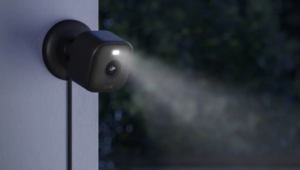Choosing the Perfect Air Purifier: Key Factors You Can’t Ignore

Air Purifier
As concerns about indoor air quality continue to grow, the demand for air purifiers has surged. These devices have become a staple in many homes and offices, offering a means to improve the quality of the air we breathe indoors. However, with a wide variety of air purifiers available on the market, choosing the perfect one for your needs can be a daunting task. In this blog, we’ll discuss the key factors you can’t ignore when selecting the perfect air purifier for your space.
- Identify Your Specific Needs
The first step in choosing the perfect air purifier is to identify your specific needs. Consider the following questions:
- Do you have allergies or asthma?
- Are you concerned about pet dander or odors?
- Is there a smoker in your household?
- Are you worried about airborne viruses and bacteria?
- Do you want to eliminate general household odors or cooking smells?
Understanding your specific concerns will help you narrow down the type of air purifier and features that will best address your needs.
- Type of Filter
Different air purifiers use various types of filters to capture and remove contaminants from the air. The most common types of filters include:
- HEPA Filters: Highly effective at trapping particles like dust, pollen, and pet dander. Ideal for allergy sufferers.
- Activated Carbon Filters: Excellent for removing odors, gases, and chemicals from the air. Perfect for eliminating cooking smells or pet odors.
- UV-C Technology: Can kill or deactivate airborne viruses and bacteria, providing an added layer of protection.
- Pre-filters: These capture larger particles, extending the lifespan of the primary filter. Like, an Anti-dust filter, a pre-filter, removes matter sized between 10-100 microns, such as dust, dirt, and pet hair from the air, or a lung filter that traps carbon particles, dust, and bacteria that affect air sacs in the lungs.
Air purifiers typically feature various specialized filters to target different pollutants like viruses, bacteria, pet dander, and other airborne contaminants. Most vacuum cleaners are equipped with multiple filters, including anti-dust filters, HEPA-13 filters, activated carbon filters, and TiO2 filters, to ensure efficient cleaning and air purification.
Therefore, consider which types of filters are essential for your needs and ensure that the air purifier you choose includes them. If you’re in search of an air purifier equipped with all the filters mentioned, opt for the Forbes FAP 8000 Air Purifier. It comes with HEPA, activated carbon filters, pre-filters, and UV-C technology that protects you and your from dust, allergens, and various pollutants. Eureka Forbes is often regarded as the best home air purifier because of their features like multiple-stage filtration and smart digital indicators.
- Room Size and Coverage
Air purifiers come in various sizes, and their effectiveness depends on the size of the room they can cover. Determine the size of the room where you plan to use the air purifier and choose a model with adequate coverage. It’s essential to match the purifier’s capacity to the room’s size for optimal performance. Consider the Dr. Aeroguard HPA 500 Air Purifier, which boasts a multi-stage purification system, including a UV-C disinfectant. This purifier is specifically designed for rooms as large as 890 sq. ft., ensuring efficient and thorough air purification within such spacious environments.
- Noise Level
Consider the noise level of the air purifier, especially if you plan to use it in a bedroom or other quiet spaces. Some models have a “silent” or “night” mode, which operates more quietly during sleep hours.
- Maintenance and Filter Replacement
Regular maintenance is crucial for the continued effectiveness of your air purifier. Check the manufacturer’s recommendations for filter replacement intervals and ease of maintenance. Some models have washable or reusable filters, which can save you money in the long run.
- Price and Budget
Air purifiers come in a wide range of prices. Establish a budget before shopping and consider the long-term costs, including filter replacements and energy consumption.
- Reviews and Recommendations
Read online reviews and seek recommendations from friends or online communities. Real-world experiences can provide valuable insights into an air purifier’s performance and durability.
In conclusion, choosing the best air purifier involves careful consideration of your specific needs, filter types, room size, noise level, maintenance requirements, energy efficiency, budget, and customer support. By taking these key factors into account, you can make an informed decision and select the ideal air purifier to improve the indoor air quality of your space, creating a healthier and more comfortable environment for you and your family.





